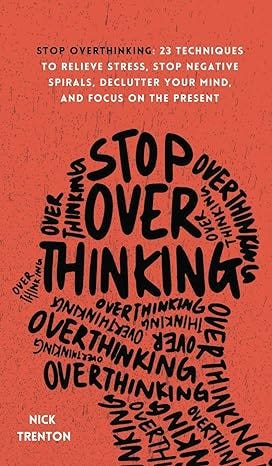Below are affiliate links, so we may receive a commission — at no cost to you — Thanks for your support!
Introduction:
In the hustle and bustle of modern life, stress has become a common companion for many. However, adopting stress reduction techniques can make a significant difference in your overall well-being. This article explores six practical and effective techniques to help you manage and reduce stress in your daily life.
Deep Breathing Exercises:
One of the simplest yet powerful stress reduction techniques is deep breathing. Practice diaphragmatic breathing by inhaling deeply through your nose, allowing your abdomen to expand, and exhaling slowly through your mouth. This technique activates the body’s relaxation response, easing tension and promoting a sense of calm.

Progressive Muscle Relaxation (PMR):
Progressive Muscle Relaxation involves systematically tensing and then releasing different muscle groups. Start with your toes and work your way up to your head, focusing on the sensations of tension and relaxation. PMR helps release physical tension, providing relief from the physical manifestations of stress.
Mindfulness Meditation:
Mindfulness meditation encourages being fully present in the moment without judgment. Dedicate a few minutes each day to mindfulness meditation, focusing on your breath or a chosen point of awareness. This practice enhances self-awareness, reduces anxiety, and cultivates a calm and centered mindset.
Exercise and Physical Activity:
Engaging in regular physical activity is a proven way to reduce stress. Exercise releases endorphins, the body’s natural stress relievers, and helps dissipate accumulated tension. Whether it’s a brisk walk, a workout session, or yoga, find activities that you enjoy and make them a consistent part of your routine.
Journaling for Stress Release:
Expressing your thoughts and feelings through journaling can be a therapeutic outlet for stress. Take a few minutes each day to write down your thoughts, worries, and positive experiences. This process not only helps clarify your emotions but also provides a tangible way to track and manage stressors.
Establishing Healthy Boundaries:
Setting clear boundaries in both personal and professional aspects of life is crucial for stress reduction. Learn to say ‘no’ when necessary, prioritize self-care, and create a balance between work and leisure. Establishing healthy boundaries ensures that you allocate time and energy to activities that truly matter to you.
Conclusion:
Reducing stress is a key component of maintaining overall well-being. Incorporating deep breathing exercises, progressive muscle relaxation, mindfulness meditation, regular exercise, journaling, and establishing healthy boundaries into your routine can lead to a more relaxed and fulfilling life. Experiment with these techniques, customize them to fit your lifestyle, and embrace the journey towards a stress-free and healthier you.
